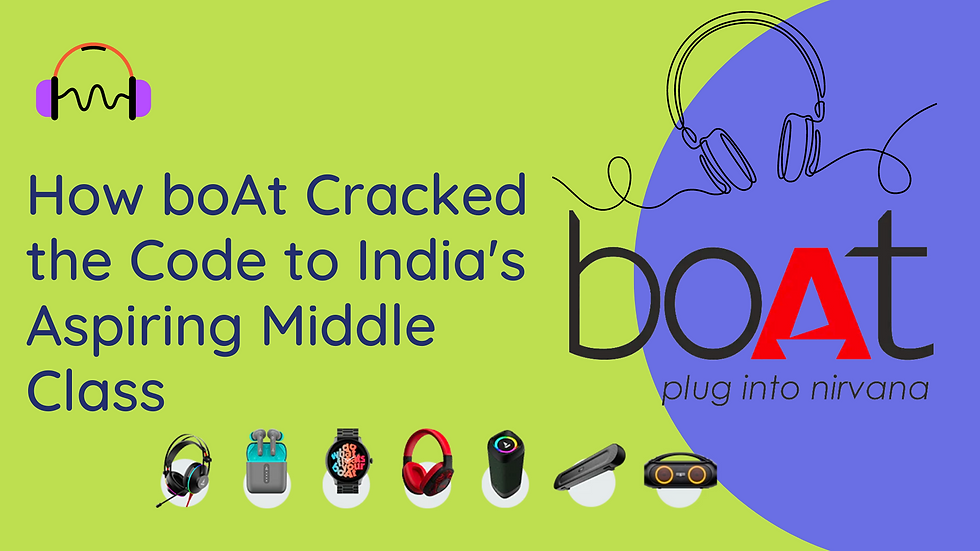Why Most B2B Onboarding Sequences Fail (and What to Do Instead)
- Vinit Nair
- Oct 30, 2025
- 3 min read

B2B companies pour time and budget into the perfect product demo, sales deck, or campaign launch — but when it comes to onboarding, many still treat it like an afterthought.
The result? New users drift away before they ever reach their first “aha” moment.
After working with multiple SaaS and enterprise brands, I’ve noticed the same five issues keep showing up. Let’s break them down and look at how to fix each one.
1. Talking About the Product, Not to the User
Most onboarding emails open with something like:
“Welcome to [Product]! Here are our top 5 features…”
That’s noise.
Early users aren’t thinking about features — they’re thinking, “Will this solve my problem right now?”
Your first message should show them what they can accomplish, not what your product can do.
Example: Instead of “Explore our dashboard,” say “Here’s how to automate your first report in 3 clicks.”
Fix: Shift from feature-first to outcome-first messaging. Every onboarding step should answer:👉 “What value does this give the user today?”
2. No Quick Win in the First 48 Hours
Activation is a fragile phase. If users don’t feel a small win fast, they assume your product is too complex or not worth their time.
The most successful SaaS brands design onboarding around a time-to-value metric — how quickly a user experiences tangible results.
Example:
Notion: “Create your first note.”
Slack: “Send your first message.”
HubSpot: “Import your first contacts.”
Fix: Identify one small milestone that delivers visible value, then make it the centerpiece of your Day-1 or Day-2 onboarding emails.
3. Too Many Steps, No Clear Success Path
Seven emails, three CTAs each, and links to docs, tutorials, and webinars? That’s overwhelm.
Onboarding is a journey, not a flood. Each step should guide users toward a single, measurable action.
Fix:
One email = one action.
One CTA per step.
Use progressive disclosure — reveal advanced features only after the user masters the basics.
Less friction = more activation.
4. One-Size-Fits-All Messaging
Every user signs up for a reason, but most onboarding flows treat everyone the same.
A founder exploring your tool is not the same as a marketing manager setting it up for a team.
Fix: Segment based on intent and behavior:
Signed up from the pricing page → show ROI use cases
Invited by teammate → highlight collaboration features
Abandoned setup → trigger a short “Need help finishing?” sequence
Modern CRMs like HubSpot, Customer.io, or MoEngage make this easy to automate.
5. No Human Follow-Up
Automation is powerful — but it shouldn’t erase empathy.
A short, personal check-in from a Customer Success Manager or Founder can make a massive difference after the first few days.
Example:
“Hey [Name], noticed you created your first campaign! Need help optimizing it?”
That human touch builds trust and boosts activation rates more than another automated nudge ever will.
So, What Does Great Onboarding Look Like?
When it’s done right, onboarding feels less like marketing and more like momentum.
Here’s the checklist I use when auditing client sequences:
✅ Segment by intent, not just signup date
✅ Deliver one quick win early (within 48 hours)
✅ Keep messaging focused — one action per email
✅ Combine automation with human follow-ups
✅ Measure success through activation metrics, not opens or clicks
B2B onboarding isn’t about teaching — it’s about guiding.
If you can help users achieve value faster, they’ll not only stick around — they’ll tell others how effortless your product is.
Need Help Fixing Your Onboarding?
I help DTC and B2B brands design lifecycle automation that drives activation, retention, and revenue — without losing the human touch.
👉 Book a Free Growth Audit: Book Now





Comments